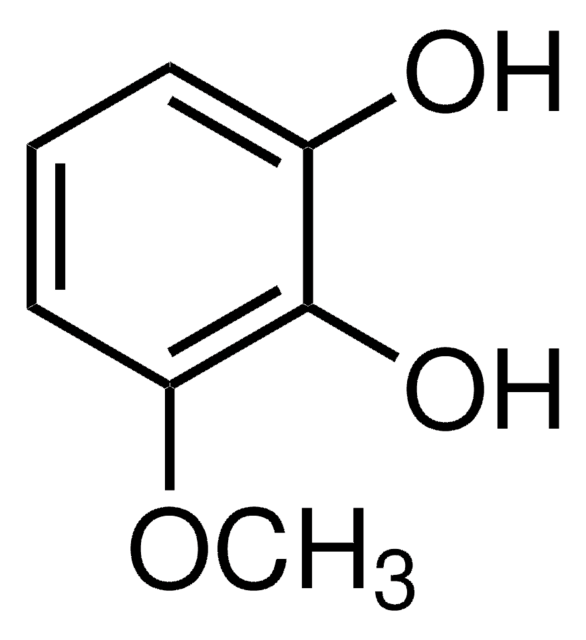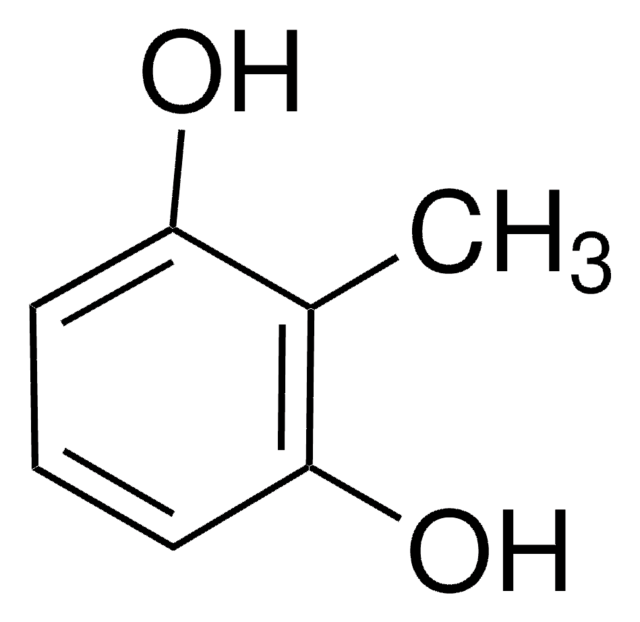M34006
3-Methylcatechol
98%
Synonym(s):
1,2-Dihydroxy-3-methylbenzene, 2,3-Dihydroxytoluene, 2,3-Toluenediol, 2-Hydroxy-3-methylphenol, 2-Hydroxy-6-methylphenol, 3-Methyl-1,2-benzenediol, 3-Methyl-1,2-dihydroxybenzene, 3-Methylpyrocatechol
About This Item
Recommended Products
Quality Level
Assay
98%
bp
241 °C (lit.)
mp
65-68 °C (lit.)
shipped in
wet ice
storage temp.
2-8°C
SMILES string
Cc1cccc(O)c1O
InChI
1S/C7H8O2/c1-5-3-2-4-6(8)7(5)9/h2-4,8-9H,1H3
InChI key
PGSWEKYNAOWQDF-UHFFFAOYSA-N
Related Categories
Signal Word
Warning
Hazard Statements
Precautionary Statements
Hazard Classifications
Acute Tox. 4 Oral - Eye Irrit. 2 - Skin Irrit. 2 - Skin Sens. 1 - STOT SE 3
Target Organs
Respiratory system
Storage Class Code
11 - Combustible Solids
WGK
WGK 3
Flash Point(F)
Not applicable
Flash Point(C)
Not applicable
Personal Protective Equipment
Choose from one of the most recent versions:
Certificates of Analysis (COA)
Don't see the Right Version?
If you require a particular version, you can look up a specific certificate by the Lot or Batch number.
Already Own This Product?
Find documentation for the products that you have recently purchased in the Document Library.
Customers Also Viewed
Our team of scientists has experience in all areas of research including Life Science, Material Science, Chemical Synthesis, Chromatography, Analytical and many others.
Contact Technical Service











